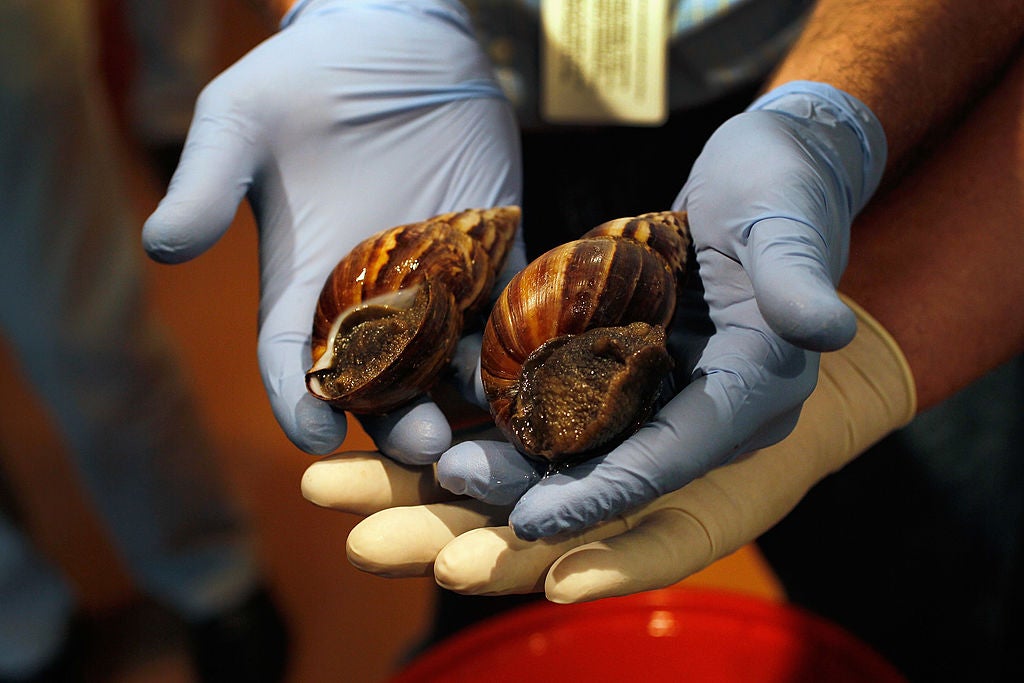Part of Florida county issues quarantine order after giant African snail spotted
Giant African Snails were first spotted in the Sunshine State in the 1960s, and it took nearly a decade and $1m to eradicate them

Your support helps us to tell the story
From reproductive rights to climate change to Big Tech, The Independent is on the ground when the story is developing. Whether it's investigating the financials of Elon Musk's pro-Trump PAC or producing our latest documentary, 'The A Word', which shines a light on the American women fighting for reproductive rights, we know how important it is to parse out the facts from the messaging.
At such a critical moment in US history, we need reporters on the ground. Your donation allows us to keep sending journalists to speak to both sides of the story.
The Independent is trusted by Americans across the entire political spectrum. And unlike many other quality news outlets, we choose not to lock Americans out of our reporting and analysis with paywalls. We believe quality journalism should be available to everyone, paid for by those who can afford it.
Your support makes all the difference.A portion of a Florida county is under quarantine following confirmed sightings of giant African snails in the area.
The Florida Department of Agriculture and Consumer Services issued quarantine orders on Tuesday after the detection of the snails in the Miramar area of Broward County earlier this month. The agency is using metaldehyde-based molluscicide or, snail bait, to eradicate the pest.
Giant African snails are extremely detrimental to agriculture, as they consume at least 500 types of plants and can cause structural damage to plaster and stucco structures. According to the USDA, it can also carry a parasite that, in some cases, can lead to meningitis in humans.
Under quarantine restrictions, it is illegal to move a snail or other regulated items — including to plant parts, plants in soil, soil, yard waste, debris, compost or building materials — without a compliance agreement.
Giant African snails were first spotted in the Sunshine State in the 1960s, and it took nearly a decade and $1m to eradicate them. A second infestation was documented in 2011 in Broward and Miami Dade and eradication efforts were completed in 2021.
The USDA describes the giant African snail as “one of the most damaging in the world,” noting that the species reproduces quickly.
Pest authorities have advised people living in the vicinities where the quarantine took effect to be cautious around the snails.
“They may carry organisms that can cause diseases in humans,” an advisory read. “These organisms can be transferred by ingesting improperly cooked snail meat or by handling live snails and allowing their mucus to contact human mucous membranes such as those in the eyes, nose and mouth.”
The snails are almost eight inches long and five inches wide — roughly the size of an average adult fist, making them one of the biggest snails in the world.
Join our commenting forum
Join thought-provoking conversations, follow other Independent readers and see their replies
Comments